Renamycin, containing Oxytetracycline HCL 500 mg, is a broad-spectrum antibiotic used in veterinary medicine for the treatment of a wide range of bacterial and protozoal infections. It is particularly effective in combating infections in various animals, including cattle, buffalo, poultry, sheep, goats, and companion animals such as cats and dogs. This versatile antibiotic inhibits protein synthesis in bacteria, making it an essential tool for managing bacterial infections in livestock and pets. Available in multiple forms, such as tablets, bolus, and injectable solutions, Renamycin is widely used to treat respiratory, gastrointestinal, and soft tissue infections.
Indications of Renamycin
Renamycin is indicated for the treatment of bacterial infections in a variety of animals, including:
- Cattle, Buffalo, Sheep, Goats:
Anthrax, hemorrhagic septicemia, black quarter, rinderpest, brucellosis, pneumonia, navel illness, liver infections, mastitis, foot rot, actinomycosis, anaplasmosis, and secondary infections in viral diseases. - Poultry:
Colibacillosis, infectious coryza, mycoplasmosis, chronic respiratory disease, fowl cholera, coccidiosis, and necrotic enteritis. - Dogs and Cats:
Pneumonia, bronchitis, pleurisy, and infectious enteritis. - Other Animals (e.g., rabbits):
Treatment for bacterial infections such as Pasteurella multocida, Bordetella bronchiseptica, and Escherichia coli.
Pharmacology
Oxytetracycline, the active ingredient in Renamycin, belongs to the Tetracycline class of antibiotics. It acts by binding to the 30S ribosomal subunit of bacteria, thereby inhibiting protein synthesis. This results in bacteriostatic effects, but at higher concentrations, it becomes bactericidal. Renamycin effectively targets both gram-positive and gram-negative bacteria, including Mycoplasma pneumoniae, Diplococcus pneumoniae, Escherichia coli, Chlamydia, Rickettsia, and spirochetes.
Dosage & Administration
- Cattle, Buffalo (50-100 kg):
Preventive: ½ caplet
Curative: 1 caplet
Respiratory tract infections: 2-4 caplets - Sheep, Goat (10-20 kg):
Preventive: ½-2/3 caplet
Curative: 1 caplet - Horse (up to 150 kg):
Preventive: 1 caplet
Curative: 1-1½ caplet - Dog, Cat:
Respiratory tract infections and other diseases: ½ caplet
For poultry, Renamycin can be administered in drinking water or feed, as per veterinary recommendation.
Interaction for Renamycin
- Penicillin and iron dextran may decrease the effectiveness of Renamycin when used concurrently.
- Antacids (containing calcium, magnesium, or aluminum salts) can lower the serum concentration of Oxytetracycline. It is recommended to allow a 2-3 hour gap between Renamycin and antacids.
- Calcium and iron may impair the absorption of Oxytetracycline, reducing its effectiveness.
Contraindications
Renamycin should not be administered to animals that:
- Have a known allergy to Oxytetracycline or other tetracyclines.
- Are pregnant or lactating without consulting a veterinarian.
- Suffer from severe renal insufficiency or liver damage.
- Are under 8 weeks of age, as the drug may affect bone development.
Side Effects of Renamycin
Possible side effects of Renamycin include:
- Gastrointestinal disturbances: nausea, vomiting, diarrhea, or constipation.
- Allergic reactions: itching, swelling, difficulty breathing.
- Sensitivity to sunlight: Skin reactions in direct sunlight.
- Neuromuscular effects: High doses may cause muscle weakness.
- Bone discoloration: In young animals, prolonged use may lead to yellow or brown teeth.
- Renal or hepatic toxicity: Especially in animals with pre-existing organ conditions.
Pregnancy & Lactation
- Pregnancy: Renamycin should not be used during pregnancy due to the potential risk of hepatotoxicity in the mother and developmental effects on the fetus.
- Lactation: Use caution during lactation, as it may affect milk production. Milk from lactating animals should not be consumed for 48 hours post-treatment.
Precautions & Warnings
- Milk withdrawal: Milk from lactating cows should not be used for human consumption for at least 48 hours after the last dose.
- Renal health: Animals with kidney disease should be closely monitored when using Renamycin.
- Extended use: Do not administer Renamycin to fish for more than 12 days without a break.
- Sun exposure: Animals treated with Renamycin may become more sensitive to sunlight, leading to skin reactions.
Overdose Effects
Renamycin has a wide safety margin and is unlikely to cause toxicity even with overdoses. However, excessive doses may result in:
- Gastrointestinal upset: Vomiting, diarrhea, or abdominal discomfort.
- Neuromuscular effects: Muscle weakness or lethargy.
- Kidney or liver strain: In cases of pre-existing conditions.
Storage Conditions
Store below 30°C in a cool, dry place, away from light.
Keep out of reach of children.
Ensure the product remains in its original packaging until ready for use to maintain its potency.
By adding more transitions, the flow of the content improves, making it easier for readers and search engines to navigate.

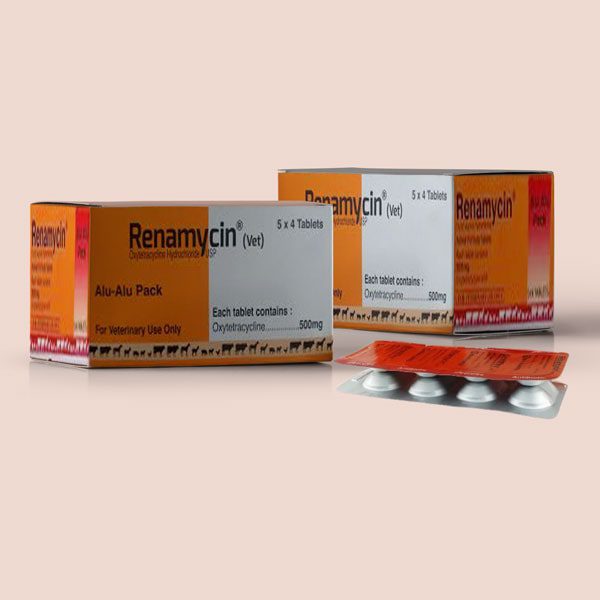
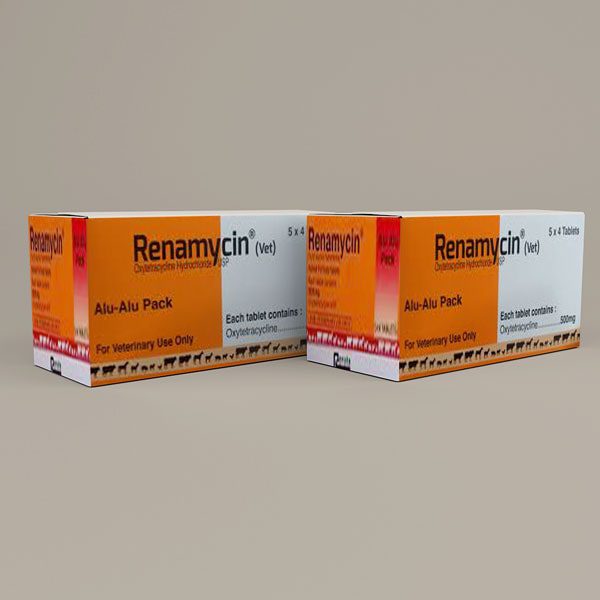
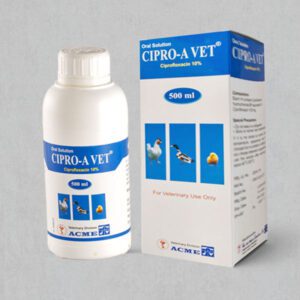

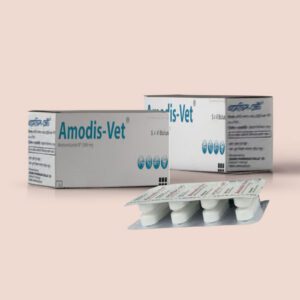
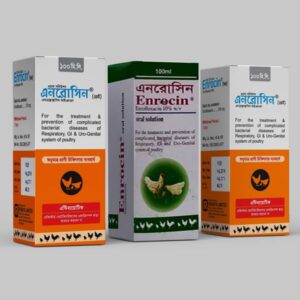

Reviews
There are no reviews yet.